With flooring, you have a lot of options. You can go with traditional hardwood or laminate, or you could opt for something that’s a little more durable, like tile or vinyl. But when it comes to choosing between waterproof and water-resistant flooring, what’s the difference? And which one should you choose for your home? Keep reading to find out!
Vinyl vs. Laminate
So, what does this mean for you? If you’re looking for flooring for a room in your home that gets a lot of traffic or is susceptible to spills, vinyl may be the better option. But if you love the look of hardwood or stone and want something that’s a little more budget-friendly, laminate could be a good choice.
When it comes to choosing to floor for your home, there are a lot of factors to consider. But one of the most important is how well the floor will stand up to water. If you’re looking for a floor that can withstand spills and moisture, choose either vinyl or laminate.
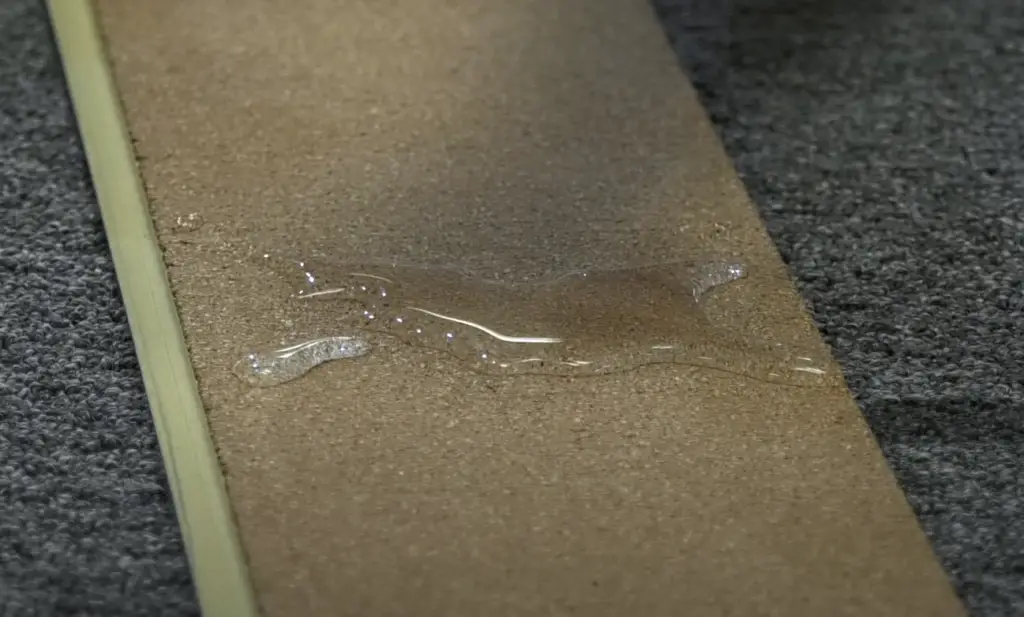
Here’s a look at the key differences between these two types of water-resistant flooring:
- Vinyl Flooring: Vinyl floors are made from polyvinyl chloride (PVC), which is a type of plastic. They’re available in sheets, tiles, or planks, and they can be either glued down or clicked together for a floating floor installation;
- Laminate Flooring: Laminate floors are made with a composite wood base that’s covered with an image of wood or stone. They usually come in planks that click together for easy installation [1];
Are Hardwood Floors Waterproof?
The quick answer is no. Waterproof flooring is a completely different category of flooring that includes options like tile, vinyl, and laminate. But that doesn’t mean hardwood floors are unusable in rooms where there might be some moisture or spills. Many manufacturers now offer water-resistant hardwood floors that have been specially treated to resist water damage. [2]
Water-resistant hardwood floors are a great option for rooms like kitchens, bathrooms, and laundry rooms where there is potential for spills. They can also be a good choice for homes in humid climates or homes with pets who may have accidents from time to time.
If you’re considering hardwood floors for a room in your home where there is potential for moisture, be sure to ask your flooring professional about water-resistant options.
So What’s SPC Flooring?
Unlike other types, SPC flooring is created to handle temperature and humidity changes without expanding or contracting. It is ideal for homes in areas with extreme climates. SPC flooring also comes in a variety of colors and styles that can mimic the look of wood or tile floors.
If you’re looking for a durable, waterproof flooring option for your home, SPC flooring is a great choice. It’s easy to install and can be used in any room in your house. Plus, it comes in a variety of colors and styles to match any décor.
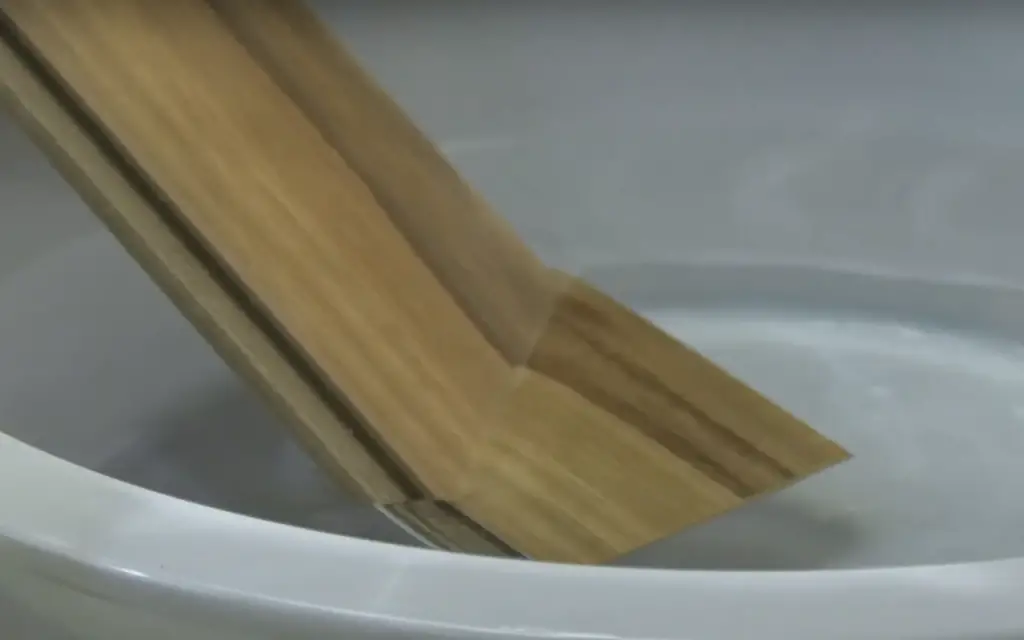
Waterproof Flooring
Waterproof flooring is a type of flooring that is designed to be completely impervious to water. This means that even if water were to spill onto the floor, it would not be able to penetrate into the material and cause damage. Waterproof flooring is an excellent choice for areas prone to moisture or spills.
Vinyl plank flooring is one of the most popular varieties of waterproof flooring. It is made up of multiple layers of vinyl that are fused together. The top layer is a wear layer that protects against scratches and scuffs, while the bottom layer is a stabilizing layer that prevents the planks from warping or cupping. In between these two layers is a waterproof core that keeps water from seeping through.
Another popular type of waterproof flooring is luxury vinyl tile, which is made in a similar way to vinyl plank flooring. The main difference is that luxury vinyl tile comes in square tiles instead of planks. It is a great choice for high-traffic areas or areas that are subject to a lot of wear and tear. [3]
Waterproof flooring is an excellent investment for any home, especially those with children or pets. Waterproof floors are easy to clean and maintain, and they will not be damaged by spills or moisture. If you are looking for a durable, low-maintenance flooring option, then waterproof flooring is the way to go.
Long-Term Cost
Waterproof flooring may have a higher purchase price, but it will save you money over time. It lasts longer than a water-resistant one, so you won’t have to replace it as often. In addition, waterproof floors are easier to clean and maintain, so you won’t have to spend as much money on cleaning products or repairs.
Durability
W/proof flooring is more durable. Waterproof floors can withstand spills and moisture better, so they are less likely to be damaged.
As you can see, there are many benefits to choosing waterproof flooring.
Versatility
W/proof flooring is also more versatile. Waterproof floors can be used in a variety of different settings, including homes, offices, and businesses. In addition, waterproof floors may match any décor.
If you are looking for a versatile flooring option that can be used in a variety of different settings, then waterproof flooring is the way to go. You’ll be able to find a style and color that fits your needs.
Water-Resistant Flooring
Water-resistant flooring resists water damage. It is made with waterproof materials and has a w/resistant coating that helps to protect the floor from water damage. It is often used in areas with a high water damage risk.
W/resistant flooring is not fully w/proof, and it can still be damaged by water if it is not properly cared for. It must be cleaned regularly to prevent dirt and grime from building up on the surface.
Initial Cost
W/resistant flooring is more expensive than traditional flooring options. The initial cost of it can range from $ 12 to $ 30 per sq. foot, depending on the type of material and the quality of the product.
W/proof flooring is even more expensive, with an initial cost that can range from $ 20 to $ 50 per sq. foot. It is often made with higher-quality materials and has a thicker waterproof layer.
Absorption Rate
This rate is important to consider because it determines how much water the flooring can resist before it becomes damaged. In general, the higher the absorption rate, the more resistant the flooring will be to water damage.
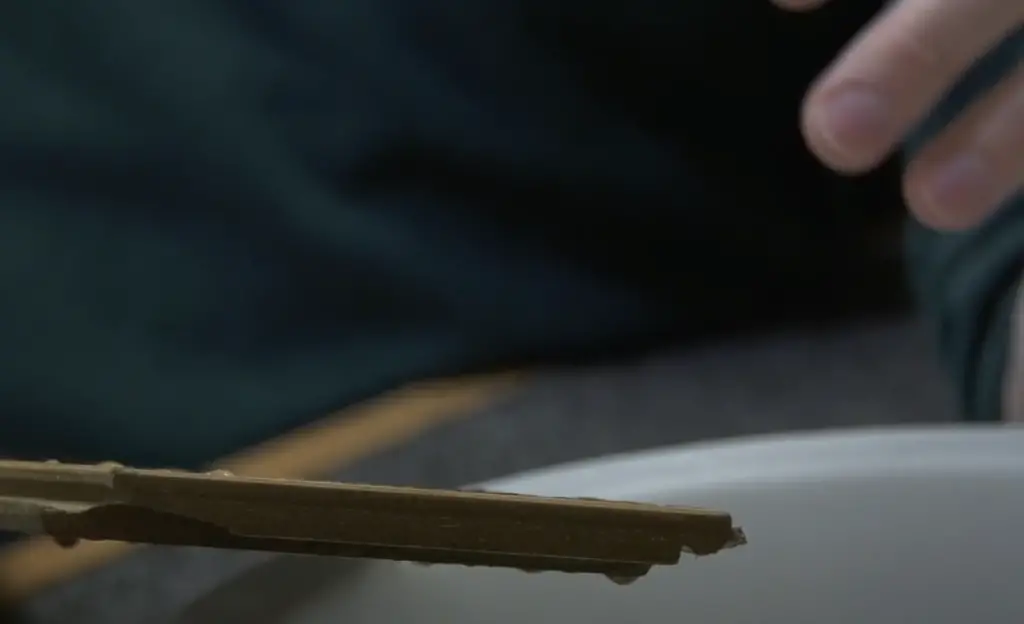
W/resistant flooring is a good option for rooms that are prone to spills or accidents, but waterproof flooring is the best choice for rooms that are constantly exposed to water.
If you’re looking for flooring that can withstand a lot of water, then waterproof flooring is the best option.
Appearance
W/resistant flooring is available in a variety of styles, so you can find an option that fits your décor. Waterproof flooring is not as widely available as w/resistant flooring. [4]
If you’re looking for flooring that has a particular appearance, then w/resistant flooring is the better option. However, if you need flooring that is more durable and resistant to water damage, then a waterproof one is the best choice.
Pros of Waterproof and Water-Resistant Laminate Flooring
Waterproof laminate flooring is ideal for any room in your home, including kitchens and bathrooms. W/resistant laminate is also a good choice for high-traffic areas prone to spills, such as entryways and mudrooms.
Here are some other advantages of choosing w/proof or w/resistant laminate:
- Laminate is easier to install than other types, so you can save on professional installation costs;
- Laminate is a durable option that can withstand heavy foot traffic and furniture;
- Laminate is easy to clean and maintain, making it a low-maintenance flooring option;
- Laminate is a budget-friendly flooring option that can give your home a high-end look;
Cons of Laminate Flooring
Laminate flooring is not fully w/proof. While it is more resistant to water than other types of floors, it will still be damaged if exposed to excessive moisture.
Laminate flooring is also not as durable as some other options, such as hardwood or tile. It is easily scratched and dented, and it’s not suited for high-traffic areas.
If you’re looking for a completely w/proof flooring option, laminate isn’t the best choice. However, if you want a more affordable alternative that is also resistant to water, laminate may be a good option for your home.
Cons of Hardwood Flooring
Hardwood floors are a classic choice for many homes, but they’re not completely waterproof. Like laminate, hardwood can be damaged by excessive moisture.
Hardwood is also a more expensive flooring option than laminate or vinyl. If you’re on a tight budget, hardwood might not be the best choice for your home.
If you love the look of hardwood but need a more waterproof option, engineered hardwood might be a good fit for your home. Engineered hardwood is made with a layer of real wood on top and layers of plywood beneath, making it more resistant to water damage.
FAQ
What’s the difference between waterproof and water-resistant laminate flooring?
W/proof laminate flooring is fully impervious to water, while w/resistant laminate can swell and warp when exposed to excessive moisture.
Waterproof laminate is made with a core layer of stone plastic composite (SPC) that resists water absorption. W/resistant laminate has a conventional HDF core layer, making it more susceptible to swelling and warping if it’s not regularly sealed and maintained. [5]
So, if you’re looking for a durable, long-lasting floor that can withstand spills, splashes, and pet accidents, waterproof laminate is the way to go. However, if you live in an area with high humidity or are concerned about potential flooding, w/resistant laminate may be a better option.
Is waterproof flooring actually waterproof?
The answer to this question is a little complicated. Waterproof flooring is designed to be impervious to water, meaning that it won’t allow water to seep through or become damaged by exposure to moisture. However, waterproof flooring is not necessarily immune to all forms of water damage. [6]
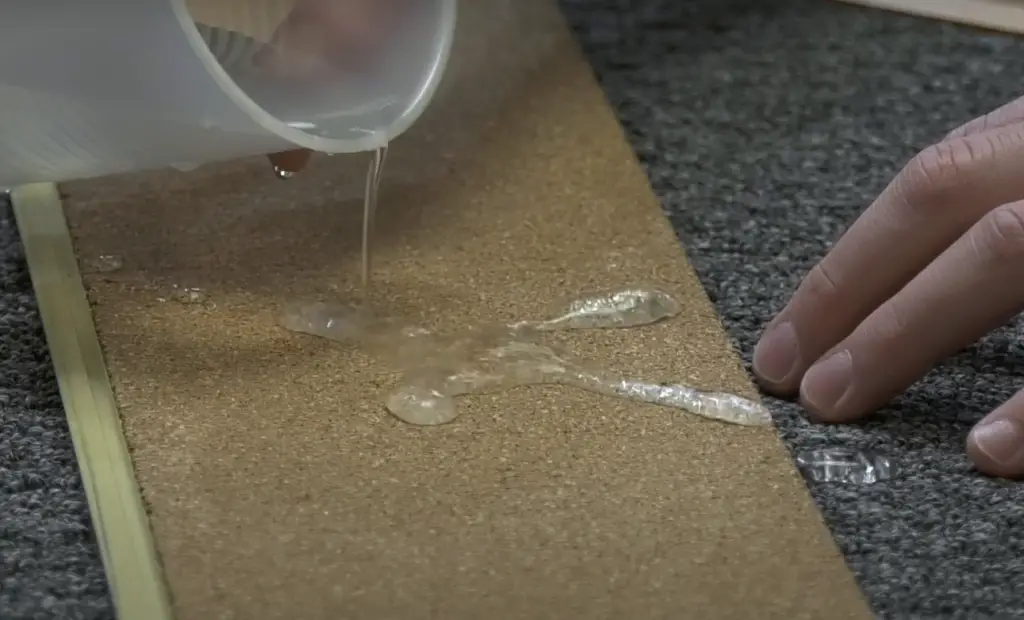
For example, if you spill a glass of water on a waterproof floor, the water will bead up and sit on top of the surface without causing any damage. However, if you were to flood your home with several inches of water, it’s possible that some of that water could seep through the seams or edges of the flooring and cause damage.
What is the difference between waterproofing and water resistance?
The main difference is that w/proof flooring is completely impervious to water, while water-resistant flooring is only moderately protected. W/proof flooring is made with materials that do not allow any water to penetrate the surface, making it ideal for areas that are prone to flooding or leaks. W/resistant flooring, on the other hand, has a protective coating that helps repel water but is not 100% effective. [7]
What does waterproof flooring mean?
Waterproof flooring is just what it sounds like – floors that won’t be damaged by water. This type of flooring is ideal for areas that are prone to spills or moisture, such as kitchens and bathrooms. W/proof flooring is also a good choice for homes with pets since it can withstand accidents.
There are two main types of waterproof flooring: vinyl and laminate. Vinyl flooring is made from PVC (polyvinyl chloride), which is a type of plastic. Laminate flooring consists of multiple layers of material, with a water-resistant layer on top.
If you’re looking for a waterproof flooring option, vinyl or laminate would be a good choice. Both types of floors are available in a variety of styles and colors to suit any home décor.
Useful Video: Waterproof vs Water resistant Floors. You Need to Know this before you buy your Floors!
Conclusion
So, what’s the verdict? Waterproof flooring is the way to go if you are looking for ultimate protection against water damage. W/resistant flooring is a good option if you are working with a tight budget or want to install flooring in an area with a low risk of water exposure.
There are a few key factors that you should consider. The most important factor is the level of protection that you need. If you are installing flooring in an area that is susceptible to water damage, then waterproof flooring is the best option.
Another factor to consider is the cost of installation. W/proof flooring tends to be more expensive than w/resistant flooring. However, the investment is worth it if you want to protect your floors from water damage.
Finally, you should think about the level of maintenance required for each type of flooring. W/proof flooring requires less maintenance than w/resistant flooring. If you are looking for a low-maintenance option, then waterproof flooring is the way to go.
References:
- https://www.thespruce.com/vinyl-vs-laminate-flooring-1822800
- https://www.ambiencehardwoodflooring.co.uk/wood-flooring-guide/is-hardwood-flooring-waterproof
- https://www.homedepot.com/b/Flooring-Vinyl-Flooring-Vinyl-Plank-Flooring/Waterproof/N-5yc1vZbzjzZ1z1bmdp
- https://www.avalonflooring.com/ideas/blog/waterproof-and-water-resistant-laminate-flooring
- https://www.flooringamerica.com/flooring-faq/cleaning-and-maintenance-faq/waterproof-vs-water-resistant-flooring
- https://www.jcfloorsplus.com/water-resistant-vs-waterproof-flooring/
- https://blog.v12footwear.com/waterproof-or-water-resistant

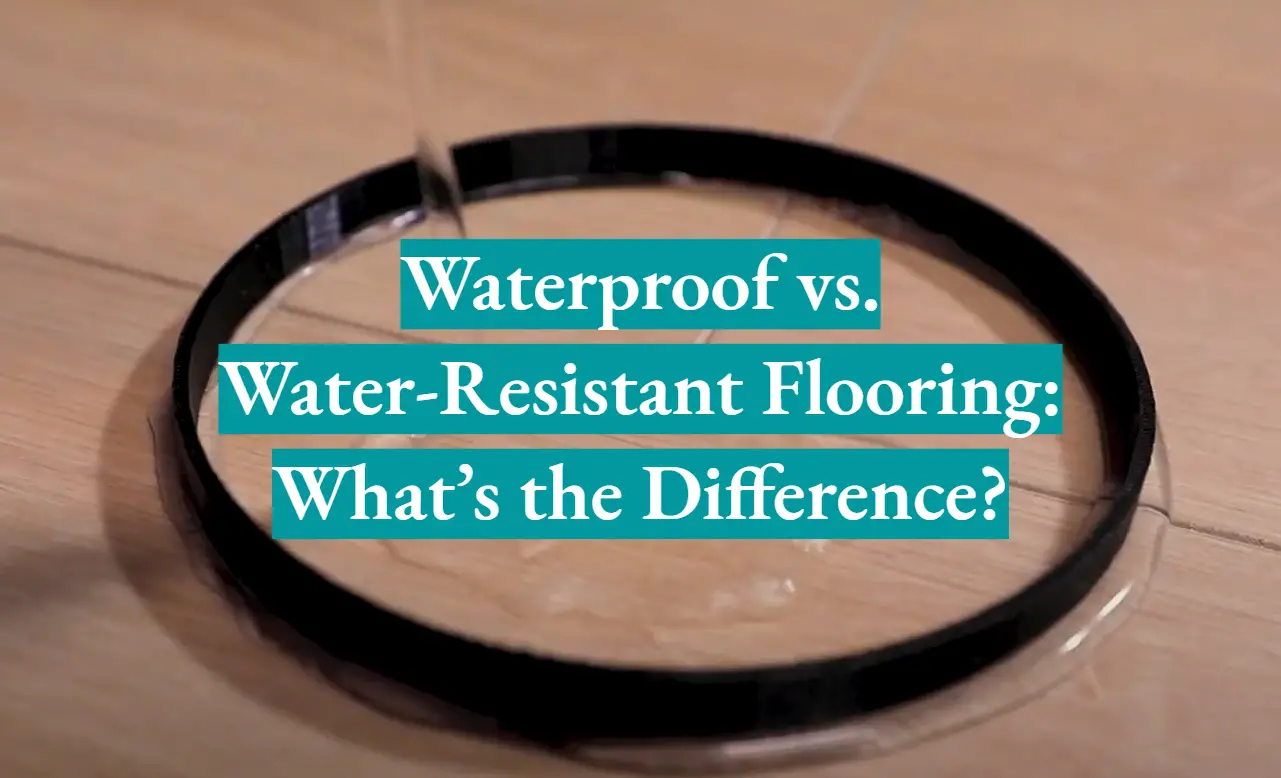
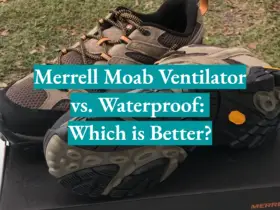
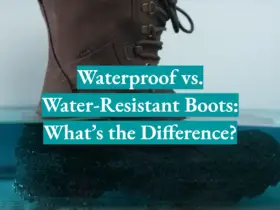

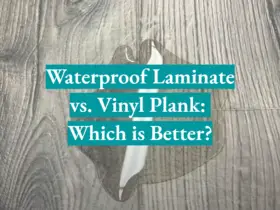
Leave a Reply